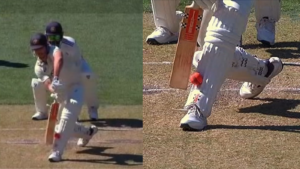During the ongoing Border-Gavaskar Trophy between India and Australia, third umpiring has been in question since the first Test match at Perth. Many decisions have been taken without proper use of tools and technology, which has led to significant controversies and dissatisfaction among players and fans.
The questionable decisions have sparked debates about the consistency and accuracy of the third umpire’s rulings, particularly given the availability of advanced tools like UltraEdge and ball-tracking systems. These errors have raised concerns about the effectiveness of technology in ensuring fair play, as well as the need for better training and protocols for match officials to avoid such issues in the future.
The third umpire could have exercised more patience, requesting additional angles and frame-by-frame analysis before making a decision. Such diligence is crucial, especially in high-stakes matches like the Border-Gavaskar Trophy, where every decision can significantly impact the game’s outcome.
In the 58th over of the second Test match between India and Australia at Adelaide, a controversy sparked among the fans due to a blunder by the third umpire. Mitchell Marsh was LBW on Ashwin’s ball, but the umpire did not give him out due to a lack of conclusive evidence. This surprised everyone, as the third umpire, Richard Kettleborough, didn’t ask for more angles or frames and took the decision in a hurry.
A similar controversy happened in the first Test, when Indian batter KL Rahul was given out even after no conclusive evidence or further frames. It was seeming clearly that there were 2 spikes, but the third umpire gave the decision without checking more angles.
This controversial decision has received widespread criticism from experts and fans, raising questions about the standard of officiating in international cricket. The decision has become a focal point of discussions on social media and cricket analysis platforms, with many calling for stricter accountability and improved use of technology in umpiring. Such errors not only affect the outcome of matches but also undermine trust in the game’s fairness, prompting calls for reforms in the decision-review process.




